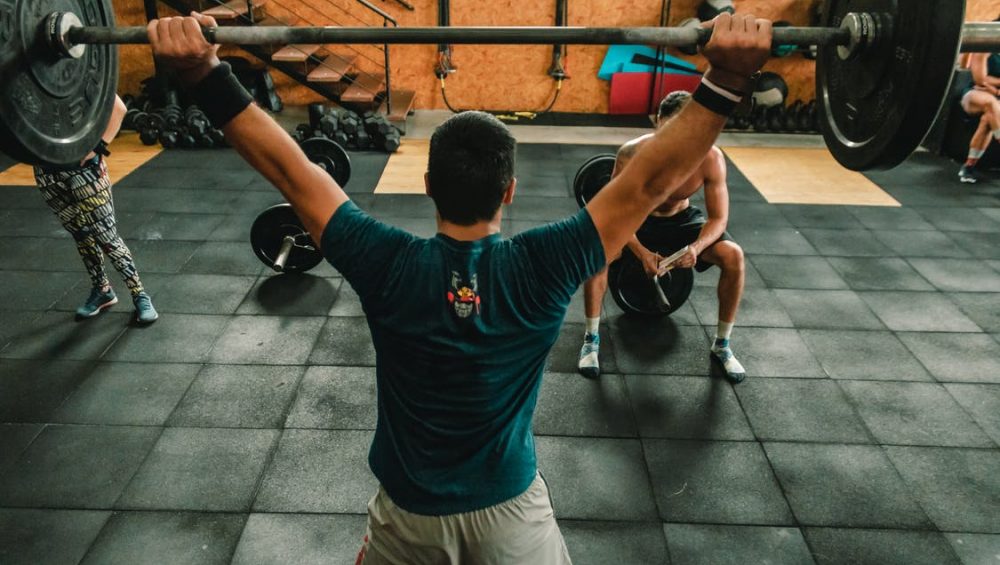THE IMPORTANCE OF RECOVERY
“Muscles are torn in the gym, fed in the kitchen, and built in the bed.”
Above line is good – no edit
When you lift a heavyweight in the gym or indulge in a strenuous exercise that makes your sweat drip down your body, you might feel an adrenaline rush in your blood. You might think, challenging your muscles to the extreme would help you gain the muscle strength that you desire. However, as much as a tough workout is essential to your muscles, recovery is equally paramount to help them rebuild themselves.
Heavy weightlifting or any form of strenuous exercise makes you feel great. That rush of dopamine giving you that familiar “Gym High” makes you feel like you have really accomplished something. The mistake a lot of people make is thinking that this experience alone will give you the gains you are looking for. As much as a tough workout is essential to make progress, recovery is equally important as this is where the muscle building actually happens – in the repair process.
Most athletes spend enormous time in the gym, lifting weights that tear their muscles. Yet, they tend to neglect the after-care that their muscles need. Remember, without proper recovery your workouts alone would not help you achieve your aim.
Athletes who spend countless hours in the gym but neglect their recovery will not see the results they could if they treated recovery as seriously as they treated their training. Lifting weights in the gym causes muscle fibers to tear. During rest and recovery these muscle fibers repair themselves, adding to their mass in the process. Training without recovery leads to soreness and little progress.
So, what does it take to get your muscles recovered in the best possible way?
So, what is the best formula for optimum recovery?
Quality supplements, optimum hydration, and adequate rest are what experts have come with after years of research and testing. Nevertheless, if you’ve ever plunged into the market to find the right supplement for yourself, you might know how overwhelming a task it can be. As these supplements are not even regulated by the Food and Drug Administration, you never know which product is actually worth your bucks.
Therefore, we decided to make the task easy for you. With extensive research and the knowledge of our highly experienced trainers, we have come up with 4 categories of supplements that would boost up your worn-down muscles after every workout.
To simplify the task for you, our experienced trainers have shared their 4 main go to supplement categories for recovery.
1. CREATINE
Creatine is the most popular supplement on the market for muscle growth. Whether you’re a beginner or a more advanced weightlifter, adding this supplement to your fitness routine would definitely be a good choice.
Numerous research studies have shown the effectiveness of Creatine on the muscles’ energy production, ultimately leading to better performance during workouts. Not only this, but it also catalyzes the formation of new proteins in your muscles, leading to increased muscle mass, strength and growth.
A four-week study published in the Nutrients journal also showed how athletes who received creatine before their intense workouts had much higher muscle recovery than the placebo group.
So, just mix some creatine with your protein and carbohydrate blend before you begin your workout at the gym, and you’ll see the results for yourself.
2. L-Glutamine
Have you ever experienced muscular pain a day after you’ve lifted heavy?
This is known as Delayed Onset Muscle Soreness (DOMS), which occurs due to the tiny tears your muscles get when you strain them. You might not feel like going to the gym when you’re not even able to leap out of your bed.
However, if you add L-Glutamine to your supplement stack, this muscle soreness might not hit you hard. A study published in the British Journal of Sports Medicine revealed that the athletes, who took L-Glutamine regularly, experienced a significant reduction in the effects of DOMS, and had much lower muscular damage than the placebo group.
Thus, to fight off the muscle soreness that might hinder the intensity of your training, make sure to supplement with some L-Glutamine just before your workouts every day.
3. BRANCHED CHAIN AMINO ACIDS (BCAAs)
Protein stimulates the production of hunger-reducing hormones in your blood. Peptide tyrosine-tyrosine (PYY), and glucagon-like peptide 1 (GLP-1) are two such hormones that increase in your blood as soon as you eat a fulfilling meal or you take a protein supplement.
The feeling of fullness that you get is because these hormones decrease your hunger drive, and also delay the emptying of your stomach contents.
And what’s more? Protein supplementation also reduces the appetite-stimulator ghrelin in your blood, making you less likely to seek out your favourite delicious meal that can send you off track.
4. BETA-ALANINE
Do you know the magic fatigue-fighting compound to alleviate your muscle tiredness?
Beta-alanine produces a compound called carnosine in your blood, that fights off muscle fatigue after a tiresome session. An experimental research article in the International Journal of Physiology revealed that the intake of beta-alanine increased a person’s time to exhaustion by 19% during high-intensity interval training when taken for 6 weeks regularly. Another research in the Journal of Applied Physiology showed that the rowers who supplemented for seven weeks with Beta-Alanine were faster than the placebo group in a 2,000-meter race.
In short, for faster performance with lower exhaustion, beta-alanine is a must have supplement.
Are these supplements the only thing to help your muscles recover from the daily breakdown?
Supplements are one of the three vital things that your muscles need. The other two are rest and hydration, which are often overlooked. At least 8 hours of sleep per night is recommended for optimal muscle recovery from intense training, neglecting this often causes muscle degradation from overtraining. Also, a day or two off from your workout schedule every week is an important aspect that you shouldn’t neglect.
How much water do I need to drink?
Did you know that the colour of your urine is an indicator for if you’re adequately hydrated?
Normally, the color of your urine should be pale or amber, which indicates that your body has nough water to excrete the wastes. The darker it is, the more water you need to consume to properly hydrate your body.
Another way to estimate your body’s water requirement is to weigh yourself before and after you exercise. For every pound that you lose, drink at least 2 to 3 cups (16 to 24 ounces) of water to replace your fluid loss.
Remember, your muscles are 75% water!
When you work out intensively, you lose a huge amount of water content through sweat. Making sure you are adequately hydrated pre-workout, and fluid replacement post-workout is a key factor in muscle recovery.
Is water the only way to hydrate my body?
No! There are many options to improve hydration uptake! We have mentioned below two of the best fluids that you can use to fasten your recovery.
CAFFEINATED DRINKS
“Caffeinated drinks are dehydrating”
You might have often heard this common myth, but the truth is quite the opposite. Caffeinated drinks have been found to hydrate as much as water as highlighted by a study by the University of Birmingham.
And what’s more?
Caffeine can even help you fight off your muscle soreness. Many studies have highlighted the role of caffeine in reducing muscle fatigue, and the effects of DOMS post-workout.
200 to 400 mg of caffeine, 30–60 minutes before a workout will not only improve your workout session performance, but may aid in your hydration regime.
Electrolyte Drink Supplements
Electrolyte Supplements, most of which are sugar and caffeine free, when mixed with water help your body to absorb the water more effectively and also supply your body with vitamins, trace minerals and of course replace the electrolytes lost through sweat in your training session. For help in choosing an electrolyte supplement contact us for advice.
From expert advice to the best supplements, we have everything that you need to recover.












